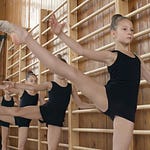Raising a junior golfer competing at a high level is exciting—but it also comes with challenges. When they were younger, you managed their schedule, reminded them to practice, and gave them pep talks. But now, as they grow, your role needs to shift.
Junior golfers are not miniature adults. Their brains are still developing, especially the part that controls decision-making and emotional regulation. This means they can struggle with pressure, doubt, and frustration. If you try to parent them the same way you did when they were younger, they might shut down or push back.
Here’s how you can best support your elite junior golfer while strengthening trust and confidence.
1. Listen More, Fix Less
When your child vents about a bad round, avoid jumping in with advice. Instead, reflect back what you hear:
“Sounds like you were striking it well on the range but couldn’t bring it to the course. That’s frustrating.”
“You feel great in practice but tense up in tournaments. I get it.”
This makes them feel heard, which builds trust.
2. Ask more Open-Ended Questions
Instead of asking, “Are you nervous?” (which invites a yes/no answer), try:
“What’s your mindset like during practice compared to tournaments?”
“What do you think is getting in the way of playing your best?”
These open-ended questions help them think through their game without feeling pressured.
3. Support, Don’t Solve
Your child doesn’t need reminders of how you handled nerves in high school sports. Instead, show empathy:
“I can see how much this means to you. Let’s figure it out together.”
Teenage golfers want guidance, not lectures.
4. Collaborate; Don’t Control
Instead of forcing a solution, involve them in the process:
“What do you think would help you feel calmer on the first tee?”
“Would you be open to mental training tools like breathing exercises or visualization?”
Giving them ownership helps them stay engaged and committed.
5. Normalize the Mental Game
Golf is 90% mental, but working on mindset isn’t always encouraged. Make it clear that mental skills are just as important as swing mechanics and physical training:
“Even tour pros struggle with nerves. Learning how to handle pressure is part of getting better.”
This takes the stigma away from things like sport psychology and mental training.
6. Shift Focus from Scores to Process
Your junior golfer already puts enough pressure on themselves. Instead of asking, “What did you shoot?”, try:
“What did you do well today?”
“What did you learn from today’s round?”
This helps them separate self-worth from results and build long-term confidence.
Final Thoughts from MPGA
Golf is a game of ups and downs, and your child needs to know you’re in their corner—win or lose. By shifting from managing their game to mentoring their mindset, you help them develop resilience, confidence, and independence.
At the end of the day, your junior golfer will remember how you made them feel—not just what they shot. Be the parent who supports their journey, not just their scores.










